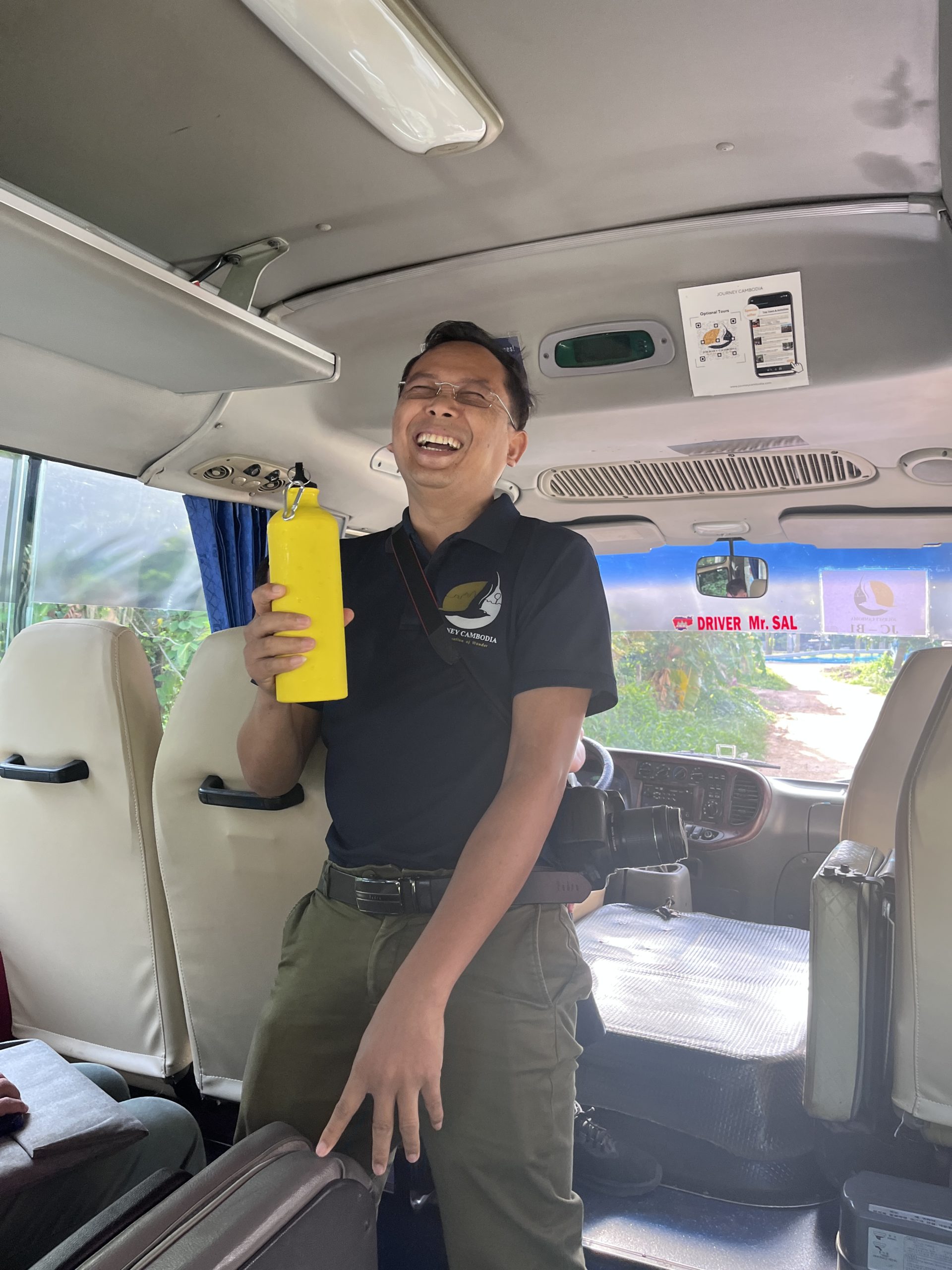
Is eliminating plastics in tour companies still relevant?
How can tour companies be plastic free? And is it enough?

I recently spoke with Tourpreneur’s Nikki Padilla Rivera, and she brought up some great discussion points about the current state of the tourism industry relating to tour companies. Nikki posed some excellent questions about whether single-use plastics is still a relevant topic in current times, where conversation about carbon neutrality and regenerative travel are now part of the dialogue.
Why plastic and why tourism?? When PFSEA began over 8 years ago, not many people were talking about sustainability, carbon neutrality or regenerative travel, so plastic was and still is a place to start, not a place to stop. It’s simple but that doesn’t mean it’s insufficient. It’s an entry point that is unfortunately still very much relevant and needed – urgently!
For example, before Covid the majority of travellers to Siem Reap would spend just 3 nights and at 2.2 million tourists per year, the resulting impact is an estimated 4.6 million plastic bottles used each month – not to mention all of the other impacts. Another reason why plastic is an impactful place to start is the visibility, where as water, a huge consumption issue for hotels, is very hard to see clearly, plastic is much more visible.
So what can tour companies do? Just last month, Sarah spoke at a Sustainable Tourism conference in Siem Reap about reducing single-use plastics in the sector. Local tour company Journey Cambodia took the message on board and within the week had swapped to reusable water bottles. The upfront investment is worth it because over the long term they’re also going to save money. Yet for their tour groups, they get a more heartfelt experience and can understand why their actions during their visit matter.
It’s one straightforward action that has multiple benefits for transforming the way tours are run and play a huge role in improving the local environment.
So why is plastic still important? The terminology is easy to understand, plastic is visible and approachable – we all know it’s a problem and it’s easy to measure. When I began doing sessions about climate change, I quickly realised that it was too vague, too big a problem to solve and not easy enough to identify solutions and actions. Plastic is still very prevalent and sadly it’s a rapidly growing industry, we need to see that shift and all of us play a role in curbing plastic consumption. The carbon footprint of plastic is massive and engaging in plastic elimination opens people’s minds to more sustainable thinking.
Wouldn’t a more splashy responsible tourism policy be more impressive to travellers?
If you have a more holistic vision, that’s excellent! If your team is on board and invested, and you communicate clearly and authentically with your guests, then GO FOR IT! We need bigger commitments and action, I’m definitely not saying we stop at plastic, more that we start there or ensure we’re not overlooking it as an obvious area of improvement.
Most important is that you’re saying what you’re doing and you’re doing what you say you’re doing! Authenticity is the key, travellers are more discerning these days and they’ll know if you’re greenwashing. They may say something, they might not… but they won’t return and if you’re part of a global or regional group, then they’ll be less likely to use your company in the future.
Do travellers really care?
Yes! They do and this has been consistently reported from booking.com’s annual survey. However, they don’t want to do the heavy lifting, and they don’t really know how to either. When they’re visiting a place for just a few days, finding the solutions is harder, so when you can encourage them to bring their refillable water bottles and carry bags on their trip or provide them on the ground and show them where they can easily refill, they’ll be able to put that into action.
There’s always a bell curve of where travellers’ attitudes are and when it comes to single-use plastic – the vast majority will just do what you tell them to do. Outliers are the ‘zero waste’ advocates and the other extreme, those who desperately want plastic bottled water etc. Make your baseline, your ‘normal’ the most environmentally friendly option you can and then ensure your staff are well trained and able to be adaptable to the different people and personalities when they’re on your tour. They’ll feel appreciated and cared for, whichever part of the bell curve they sit on.

Ref: https://www.mathguide.com/lessons3/BC.html
To use Siem Reap as the example again, visitors stay an average of 3 nights, that’s not really long enough to find a reliable filtered water source or possible to get through a 20L tank of water (if they even know that’s an option). However, if their tour company and hotels make this easily available and show them the way, then they’re able to avoid single-use bottles for most of their stay.
To them it’s just 3 days, but to Siem Reap it’s 4.6 million bottles a month. So it’s really up to the businesses they interact with and buy from to provide the solutions for them if we want to solve this issue.
If there’s one small thing a tour company can do to shift the dial?
Put a regular agenda item on all meetings, even if it’s just 5 minutes to start with. I like to call this the ‘mini green spotlight’. So often ‘green teams’ or ‘environmental committees’ meet outside of the normal meetings and this means that only those already invested and engaged connect about environmental matters. This limits their capability to create change because they’re colleagues aren’t invested.
Making this a part of all meetings means that all staff are exposed to ideas, concepts, action and together you can start building up this aspect of doing business.
If you want to become truly sustainable and avoid the risk of greenwashing, we’ve just launched a new course for Sustainability Managers to help you implement sustainable change in your business, with support and expertise to save you time and engage your stakeholders on sustainability! Applications are open until 6 September 2023, you can find out more by signing up here.
0 Comments